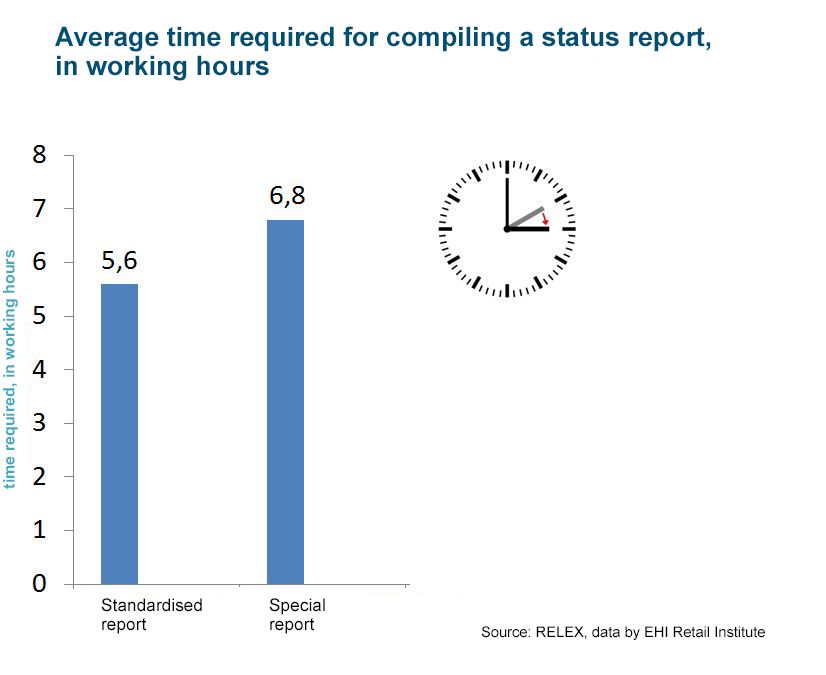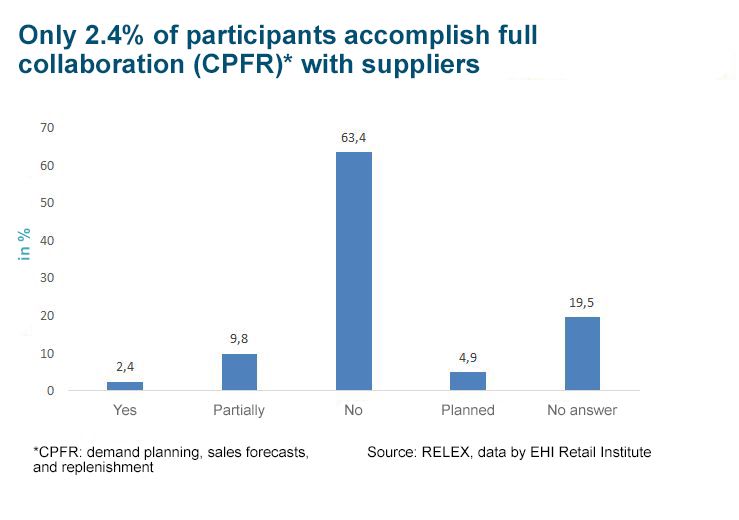Retailers in Europe’s Biggest Market Still Struggle to Avoid Stock-Outs
Nov 18, 2015 • 3 minNew Study from German EHI Retail Institute and RELEX.
18th November 2015: Empty shelf spaces, wrong product assortment – all daily struggles for retailers. To keep losses to a minimum, supply chain management has to deliver optimal performance, from suppliers right through to the point of sale. In a recent study commissioned by RELEX, German EHI Retail Institute has analysed the current state of retailers’ and wholesalers’ supply chain control across Germany. Forty-one companies took part, representing about a third, by turnover, of the country’s 50 largest retailers and wholesalers; from fashion, furniture and textiles to grocery and drugstores. One thing became very clear: They are all particularly interested in avoiding stock-outs.
Replenishment and inventory management is seen as highly time consuming by German businesses – it accounts for an average of 1,373 hours per week amongst participating companies. Yet 22% of those companies still don’t know when stock-outs are imminent. So it came as no surprise that 83% would like to be able to reduce the number of out-of-stock situations. Dr. Timo Ala-Risku, RELEX’s Country Manager Germany, sees a link to a rising demand for automation in retail and wholesale across Europe: “In particular businesses handling fresh food benefit from automated supply chain management – time is of the essence when it comes to cutting spoilage with fast-moving products.”
“In particular businesses handling fresh food benefit from automated supply chain management – time is of the essence when it comes to cutting spoilage with fast-moving products.”
Another issue: Many companies still compile special status reports manually or using spread sheets. The average time expended by companies surveyed was around seven hours for each special report, although they could be generated in seconds using modern, big-data-based supply chain management software. “There’s still a lot of potential for automating and digitising these processes in German retail and wholesale. It is obvious that companies have some catching up to do in this area – and big data will continue to be an important supply chain topic for some years yet,” says Marco Atzberger, a member of EHI Retail Institute’s executive board.

And while 63.4% see high value in close collaboration with suppliers, only 2.4% of participants accomplish full cooperation and coordinate demand planning, sales forecasts and replenishment with them.

Although there’s a clear need for action, many companies shy away from switching to a modern SCM solution. Dr. Timo Ala-Risku, who regularly discusses such issues with retailers and wholesalers, thinks the reason is clear: “Many of them don’t dare to take the step to a modern SCM solution because they are afraid to make the wrong investment decision. But with the software-as-a-service (SaaS) model, the risk is vastly reduced. You don’t need expensive hardware and clients only pay for the actual usage and service.”
And how do German retailers and wholesalers fare in comparison with their British counterparts? Read the results of a similar study done by Martec in the UK in spring 2015 here: State of the Retail Supply Chain 2015